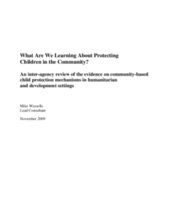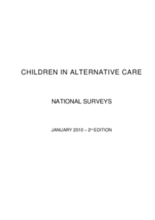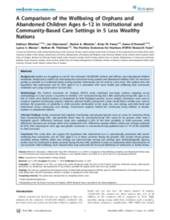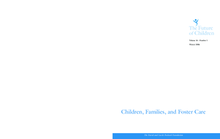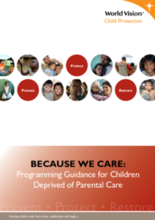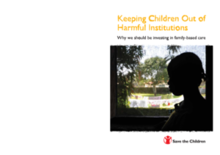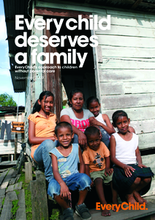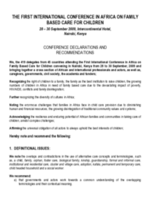Displaying 201 - 210 of 312
An interagency review of the available global evidence on community-based child protection mechanisms, their effectiveness, cost, scalability, sustainability and impact on children’s protection and wellbeing
In 2009 Eurochild carried out a survey of the situation of children in alternative care in Europe through its member organisations. The survey was not intended as a scientifically rigorous research exercise but rather to identify what information is readily available and to note some common trends across Europe.
Guidance for practitioners involved in child care reform, including direction on planning for de-institutionalization in parallel with community based services
Global policy makers are advocating that institution-living orphans and abandoned children (OAC) be moved as quickly as possible to a residential family setting and that institutional care be used as a last resort.
Provides global estimates of the number of highly vulnerable children; a summary of United States Government (USG) assistance programs for highly vulnerable children; a summary of progress coordinating the response among USG agencies; key strategic issues and opportunities; priorities for 2009–2010 and beyond; and a summary of the results and achievements of USG assistance
Provides recommendations for World Vision and partner agencies on general alternative care principles and analysis of alternative care models.
Examines the latest evidence of the harm institutional care can cause to children. It explores why governments and donors continue to prioritize institutional care, despite the harm it can cause.
This document outlines EveryChild’s approach to the growing problem of children without parental care by defining key concepts, analysing the nature and extent of the problem, exploring factors which place children at risk of losing parental care, and examining the impact of a loss of parental care on children’s rights.
Summary of conference delegates' declarations and recommendations
This paper describes CARE Rwanda’s Nkundabana model, which mobilizes adult volunteers from the community to provide guidance and care for children living in households without adult support, and discusses lessons learned.

